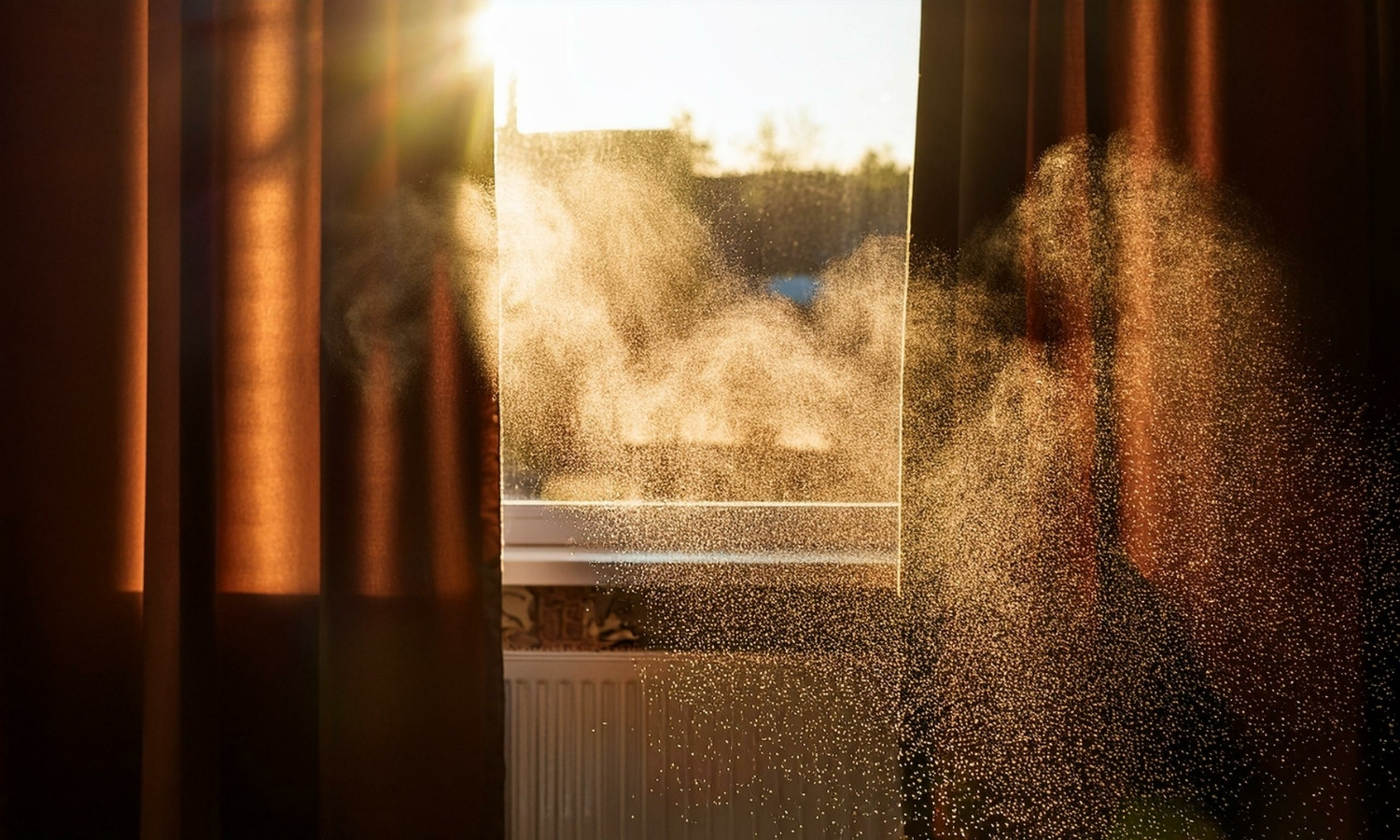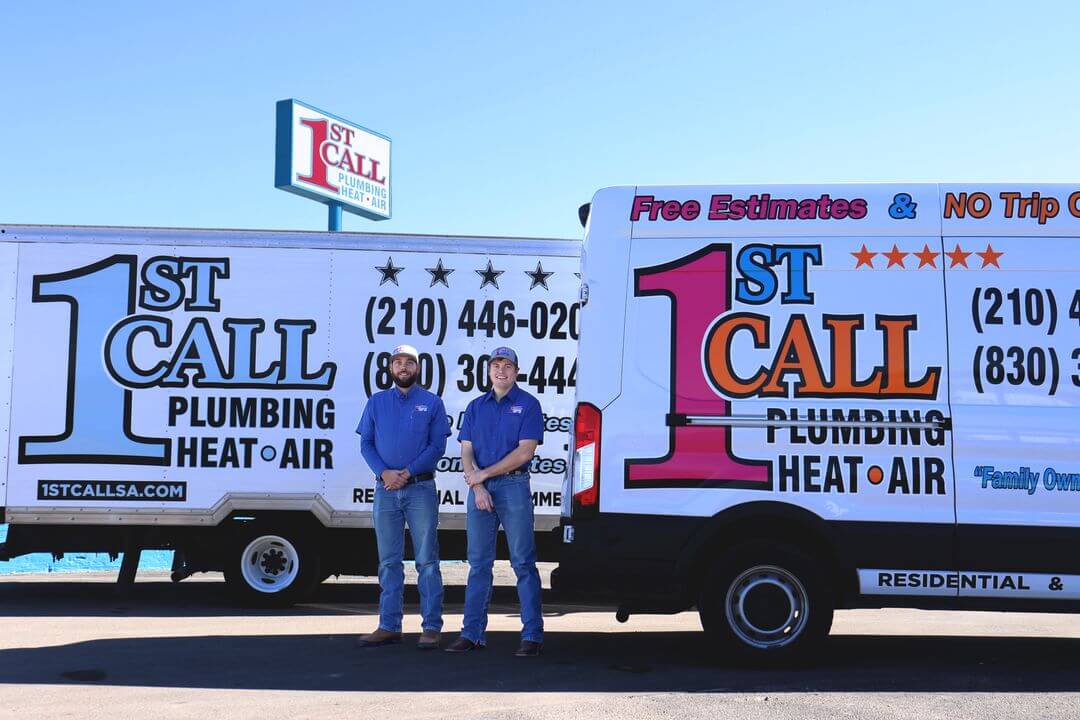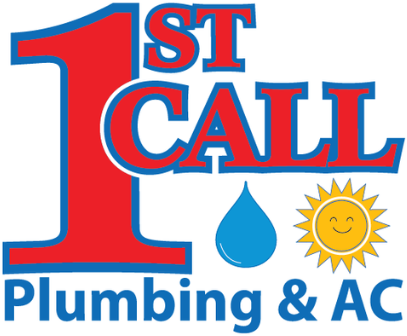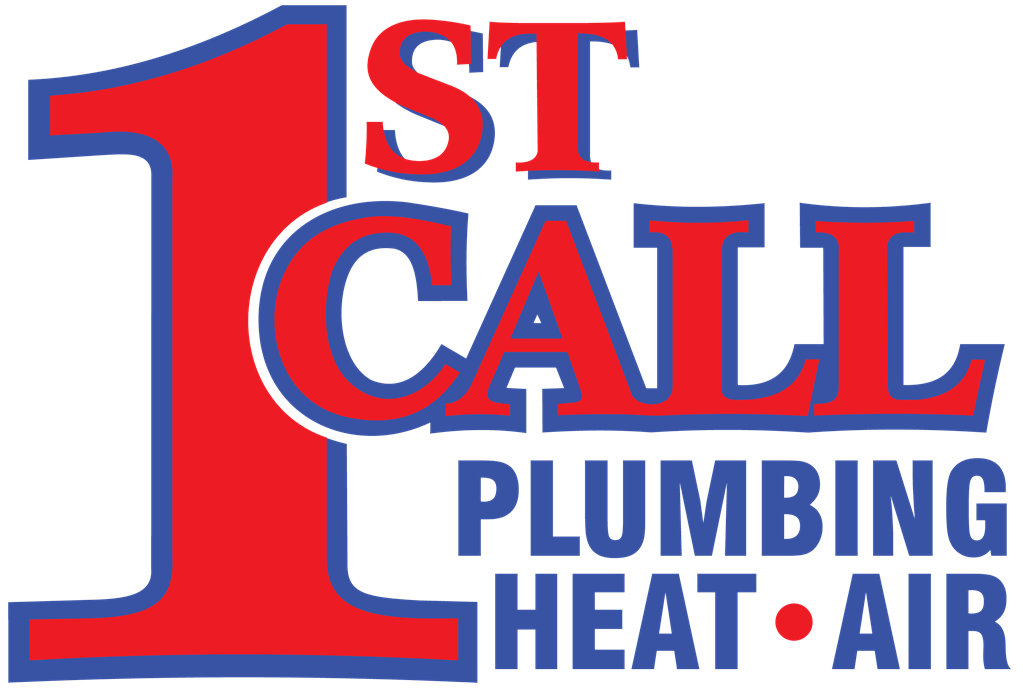When most Texas homeowners prepare for summer, they think about tuning up their air conditioning unit or cleaning their gutters. But there’s one area that’s just as important—and often overlooked: your indoor air quality.
With rising temperatures driving more time indoors, the quality of the air inside your home becomes crucial for your health, comfort, and even your HVAC system’s efficiency. That’s why the experts at 1st Call Plumbing & AC want you to understand how you can breathe easier before summer sets in.
In this guide, 1st Call Plumbing & AC will walk you through everything you need to know to improve your indoor air quality before the Texas summer arrives.
Table of Contents
- Why Indoor Air Quality Matters More in Summer
- Common Indoor Air Pollutants in Texas Homes
- How Your HVAC System Affects Indoor Air Quality
- 6 Expert Tips to Improve Your Home’s Air Quality
- Signs It’s Time to Service or Replace Your AC Unit
- How 1st Call Plumbing & AC Experts Can Help
- Final Thoughts + Free Estimate Offer
Why Indoor Air Quality Matters More in Summer
When temperatures soar, you naturally spend more time indoors, relying on your HVAC system to keep you cool. But if your air conditioning system isn’t clean and well-maintained, it can circulate allergens, dust, and even mold spores throughout your home.
Why summer makes things worse:
- Increased AC usage: Your AC system runs longer and more frequently, which means any existing buildup in your HVAC ducts, vents, or filters is recirculated more often.
- Closed windows and doors: In cooler seasons, your home “breathes” more. But in summer, windows and doors stay shut for weeks, limiting ventilation and airflow.
- More humidity: High humidity levels promote mold and mildew growth, which reduces air quality and can damage drywall, ceilings, and vents.
- Greater exposure time: Families, especially children and elderly individuals, spend more time indoors during the summer. This makes air quality a health priority—not just a comfort concern.
If anyone in your home suffers from allergies, asthma, or respiratory sensitivities, poor indoor air quality can turn a relaxing summer into a season of sneezing, coughing, and doctor visits. That’s why 1st Call Plumbing & AC encourages early summer HVAC checkups that focus on air quality improvements—not just cooling performance.

Common Indoor Air Pollutants in Texas Homes
The blend of contaminants in Texas homes varies depending on location (urban vs rural), home age, AC unit age, maintenance history, and lifestyle. However, these are the top offenders that compromise indoor air quality:
Outdoor Pollutants That Get Indoors:
- Pollen and allergens from oak, cedar, ragweed, and other native Texas plants. Even with closed doors, these particles can enter via clothing, pets, or air leaks.
- Vehicle emissions and industrial pollutants, especially if you live near busy roads or commercial areas.
Indoor Pollutants You Create Without Realizing:
- VOCs (Volatile Organic Compounds) from furniture, paints, glues, and synthetic cleaning products.
- Pet dander, which builds up in carpet, furniture, and HVAC filters.
- Smoke from cooking, candles, or tobacco use.
- Dust mites, especially in homes with carpeting or poor ventilation.
Moisture-Related Pollutants:
- Mold spores and mildew thrive in warm, humid environments—common in Texas bathrooms, laundry rooms, and inside clogged AC drip pans.
- Poorly ventilated areas, such as attics and crawl spaces, where stale, contaminated air accumulates and eventually makes its way indoors.
At 1st Call Plumbing & AC, we start every indoor air quality assessment by identifying which pollutants are most affecting your home. From there, we create a custom action plan that may include filtration upgrades, ductwork inspections, or whole-home purifiers.
How Your HVAC System Affects Indoor Air Quality
Think of your HVAC system as the lungs of your home—it circulates air through every room, multiple times a day. If the system is dirty, leaking, or poorly maintained, it spreads pollutants rather than filtering them.
Here’s how different HVAC components can impact air quality:
Filters:
- Dirty or low-grade filters allow small particles to circulate through your home.
- High-efficiency filters (like HEPA or MERV 13+) trap 99% of harmful pollutants.
- 1st Call Plumbing & AC recommends filter replacements every 1–2 months during peak summer use.
Ductwork:
- Dust, pests, and mold can accumulate in ducts, especially if they’re old or poorly sealed.
- Leaks pull in unfiltered air from crawl spaces or attics.
- Our team offers duct inspections and sealing services to fix these hidden problems.
Condensation & Drainage:
- AC systems create moisture as they cool your air. If drainage lines clog or coils remain dirty, mold can form inside the system.
- We routinely check and clean evaporator coils, drain pans, and condensate lines as part of our AC service visits.

Ventilation:
- Older HVAC systems often lack proper ventilation systems to bring in fresh air.
- Newer systems can include ERVs (Energy Recovery Ventilators) or HRVs (Heat Recovery Ventilators) that improve air exchange.
By addressing these components during a scheduled tune-up, 1st Call Plumbing & AC ensures your AC unit is improving—not compromising—your indoor air quality.
6 Expert Tips to Improve Your Home’s Air Quality
Want to breathe easier this summer? Here are six proven ways to improve indoor air quality, straight from the licensed HVAC technicians at 1st Call Plumbing & AC:
- Schedule an HVAC Tune-Up
- Your first step should be booking a professional AC service with 1st Call Plumbing & AC. Our technicians will clean your coils, replace your air filter, check for leaks, and ensure your HVAC system is operating efficiently—all of which help clean the air you breathe.
- Replace Air Filters Regularly
- This simple task is often overlooked. 1st Call Plumbing & AC recommends changing your air filters every 30 to 60 days during the summer months, especially if you have pets or allergies.

- Install UV Air Purifiers
-
- Ultraviolet (UV) lights installed by 1st Call Plumbing & AC inside your HVAC system can destroy airborne bacteria, mold, and viruses. This is one of the most effective tools for improving indoor air quality year-round.
- Upgrade to a High-Efficiency Filter
- If you’re using a basic fiberglass filter, consider upgrading to a HEPA filter or a MERV 11+ filter. Our team can help you choose and install the right filter for your HVAC system.
- Keep Humidity in Check
- High humidity in Texas homes can lead to mold and mildew. 1st Call Plumbing & AC offers whole-house dehumidifier installations to help you maintain optimal indoor humidity.
- Improve Ventilation
- Ensure bathrooms and kitchens have working exhaust fans. If your home is tightly sealed, talk to our HVAC experts about installing a fresh air intake system.

Signs It’s Time to Service or Replace Your AC Unit
Not all HVAC issues come with loud noises or major breakdowns. Many problems that impact indoor air quality happen slowly. Here are the warning signs 1st Call Plumbing & AC recommends watching for:
Musty or Unpleasant Odors
- Smells like mildew, wet socks, or stale air? That could signal mold inside the unit or ducts.
Inconsistent Temperatures
- Are some rooms hot while others stay freezing? Poor airflow means your system isn’t distributing air properly—possibly due to clogged filters, leaky ducts, or failing components.
You hear your AC Unit running more than normal
- During the summer your AC unit will run longer than normal due to trying to keep up with higher temperatures and humidity. Ideally the average time for an air conditioning unit to cycle on and off during the summer typically ranges from 15 to 30 minutes.
High Energy Bills
- A sudden spike in your utility bills may mean your HVAC system is overworking due to clogged filters, dirty coils, or poor insulation.
Visible Mold or Excessive Dust
- Black or gray spots near vents, or dust buildup shortly after cleaning, may be signs your system is blowing contaminants through the house.
System Age
- If your AC unit is over 10–12 years old, even basic repairs may not restore efficiency or clean airflow. An outdated system lacks modern filtration and purification features. New AC units are more efficient, which will lower your electric bill and carbon footprint.
If you notice any of these warning signs, 1st Call Plumbing & AC can assess your AC system and provide a clear recommendation—whether that’s a quick HVAC repair or a full AC replacement.

How 1st Call Plumbing & AC Can Help
With over 35 years of trusted experience in the San Antonio area, 1st Call Plumbing & AC is your local expert for improving indoor air quality.
Our HVAC services include:
- AC repair and seasonal maintenance
- Full AC system replacements
- Installation of UV air purifiers and high-efficiency filters
- Whole-home dehumidifier solutions
- Indoor air quality testing and diagnostics
Here’s why San Antonio homeowners count on us:
We are licensed, insured, and proudly rated 4.9 stars across more than 1,250 customer reviews. Whether you need an emergency HVAC repair or want a custom solution for better indoor air, we’re here for you—7 days a week.
✅ Certified HVAC technicians with decades of hands-on experience.
✅ Zero Trip Charge and fully stocked trucks—we are always prepared on the job.
✅ FREE Onsite Estimates—we don’t guess. We assess the problem at your home.
✅ Upfront pricing—no surprises, no upselling.
✅ Thorough inspections and diagnostics to pinpoint issues accurately.
✅ Same-day and emergency HVAC service available for urgent needs.
✅ Satisfaction guarantee—we stand behind our work!
Final Thoughts & Free Estimate Offer
Don’t wait until the heat and humidity hit full force to take action. Improving your indoor air quality now will help you stay healthier, more comfortable, and energy-efficient all summer long.
Let the experienced team at 1st Call Plumbing & AC help you breathe easier with reliable HVAC service and personalized solutions tailored to your home.
📞 Request a free service estimate today or call us directly at 210-446-0200.




